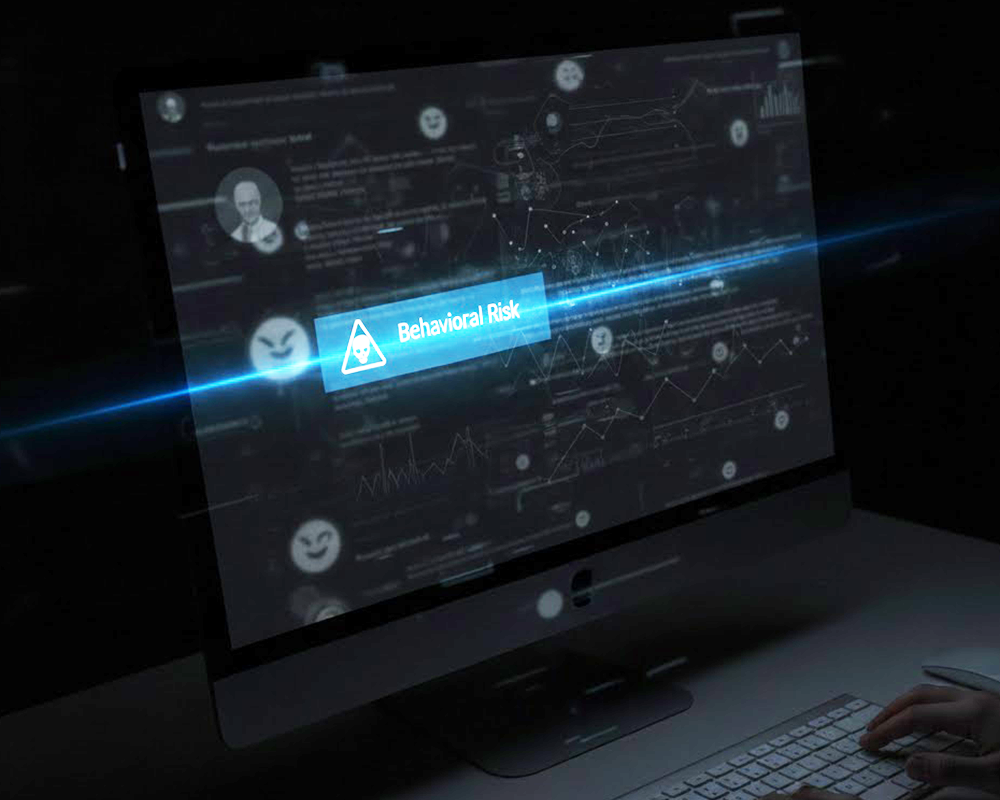The shift to skills-based hiring is transforming how organizations find and evaluate talent. With 51% of business leaders concerned about future talent shortages and 86% now comfortable hiring based on skills profiles rather than traditional credentials (Workday: State of Global Skills), companies are rethinking every aspect of their recruitment process.
But there's one critical touchpoint that hasn't evolved at the same pace: background verification.
While hiring teams have embraced new ways to assess capabilities, most background check processes still operate on outdated assumptions. They're designed for a world where job candidates had linear career paths, traditional degrees, and predictable employment histories. Today's skilled professionals often have diverse backgrounds: bootcamp graduates, freelancers, remote workers, career changers, and specialists with unique combinations of technical and soft skills.
Organizations that align their background verification process with their skills-based hiring strategy don't just make better hiring decisions - they create a competitive advantage in talent acquisition. They build trust with candidates, reduce time-to-hire, and ultimately secure the skilled professionals who will drive their business forward.
When Skills Matter More Than Credentials
The transformation in how we evaluate talent represents one of the most significant shifts in hiring practices in decades. Healthcare systems are hiring based on patient care capabilities rather than just educational pedigree. Technology companies are recruiting bootcamp graduates who can demonstrate real coding proficiency. Manufacturing firms are seeking professionals who can prove their expertise with specific equipment or processes, regardless of their formal training background.
The numbers tell the story: companies using skills-based hiring practices are 36% more likely to find qualified candidates and see 5x better retention rates compared to traditional credential-focused approaches. But this evolution brings new verification challenges that most background check processes weren't designed to handle.
The Career Changer: A marketing professional who learned data analysis through online courses and freelance projects, building demonstrable expertise without formal education in the field.
The Specialist Consultant: An expert who's worked with multiple organizations on specific projects, developing deep skills that might not show up in standard employment verification.
The Remote Professional: Someone who's built their career working for companies across different states or countries, creating verification challenges for traditional employment checks.
The Continuous Learner: A professional who regularly updates their skills through certifications, online programs, and hands-on experience, with credentials that may not appear in standard educational databases.
Skills-based candidates approach the hiring process differently, too. These candidates value transparency in the hiring process because they're used to being evaluated on merit rather than credentials. They expect clear communication about what's being verified and why, and they're more likely to engage positively with background check processes that respect their professional story rather than treating them as potential risks to be eliminated.
This creates an opportunity for organizations that adapt their verification approach to match their skills-first hiring philosophy. When background checks align with skills-based evaluation, they become part of building the candidate relationship rather than a potentially damaging interruption.
Where Most Background Checks Kill the Candidate Experience
Even organizations with exceptional interview processes and candidate-centric cultures often see their reputation take a hit during the background check phase. Understanding where these breakdowns occur - and why - is the first step toward creating a verification process that strengthens rather than damages candidate relationships.
The Three Common Experience Killers
1. The Information Vacuum
The most frequent complaint we hear from candidates? Complete silence after they've provided consent for background checks. Here's what typically happens:
A candidate receives an automated email requesting information and consent. They provide everything requested - employment history, references, educational details - then hear nothing for days or weeks. No acknowledgement that their information was received. No timeline for completion. No updates when delays occur.
From the candidate's perspective, they've just shared detailed personal information with a company they're excited to join, and that company has gone radio silent. Meanwhile, they may be fielding calls from other potential employers, making career decisions based on incomplete information about your timeline.
The Impact: Candidates often interpret silence as disinterest. In a competitive talent market, many will accept other offers rather than wait indefinitely for your process to conclude. Even candidates who do wait often report feeling undervalued by the lack of communication.
What Works Better: Regular touchpoints that acknowledge receipt of information, provide realistic timelines, and offer updates when circumstances change. This doesn't mean revealing investigation details, but rather maintaining the relationship you've built throughout the hiring process.
2. Generic, One-Size-Fits-All Screening
Traditional background check providers often apply the same screening package to every role, regardless of the specific skills or responsibilities involved. This creates several problems:
The Mismatch: When your hiring process has evolved to include evaluating skills and capabilities, but your background check process still operates on credential assumptions, candidates notice the disconnect. They've just spent hours demonstrating their technical abilities in practical assessments, only to have their background check focus primarily on whether they graduated from college.
What Candidates Experience: Frustration that the verification process doesn't align with what you said mattered during interviews. Questions about whether you truly understand their value proposition. Concern that decision-makers don't have accurate information about their most relevant qualifications.
3. The Investigation vs. Elimination Approach
Many background check processes are designed primarily to find reasons not to hire candidates rather than to verify the skills and experience that made them attractive in the first place. This approach affects both the information gathered and how it's communicated.
Traditional Approach: Focus heavily on identifying any negative information - criminal records, employment gaps, discrepancies in dates - while providing minimal verification of claimed capabilities.
Skills-Based Need: Thorough verification of claimed skills, experience levels, and actual job performance, with appropriate context for any identified concerns.
When candidates sense they're being investigated for elimination rather than verification, they often become defensive or disengaged. This is particularly problematic with skilled professionals who are used to being courted rather than scrutinized.
Skills-Based Screening: A Framework Designed for Today's Workforce
Adapting background verification to support skills-based hiring requires a fundamental shift in what you verify and how you verify it. The most effective approaches address the unique verification needs of modern professionals while maintaining thorough investigation standards that protect your organization.
Identity Validation in the Digital Age
With remote work, freelance careers, and digital credentials becoming the norm, identity validation has become more complex - and more critical - than ever before. Your verification process should include multiple layers to ensure that claimed digital skills and certifications actually belong to the person you're considering.
Comprehensive Identity Cross-Referencing
Effective identity validation goes well beyond basic database searches. Your process should cross-reference multiple personal identifiers, including Social Security Number traces, address history verification, and ideally include Consent-Based Social Security Verification (CBSV) directly through the Social Security Administration. This comprehensive approach is particularly valuable when verifying candidates with non-traditional career paths or extensive remote work experience.
Document Authentication
For skills-based roles where specific certifications matter, your verification should include authentication of identity documents like professional licenses, driver's licenses, and passports. Advanced verification techniques, including biometric identity verification that uses facial recognition technology, can confirm that the person presenting credentials is actually who they claim to be.
Employment Verification That Reveals Real Capabilities
Traditional employment verification focuses on job titles and dates, but skills-based hiring requires understanding what candidates accomplished in their roles. The most effective employment verification approaches use investigative methods that uncover the substance behind job titles.
Enhanced Verification Capabilities
Your employment verification should go beyond basic confirmation to include custom questions specific to your industry or role requirements. This might include confirming specific technologies used, scale of projects managed, or types of problems solved. For candidates with international work experience, your process should include specialized international employment verification capabilities.
Thorough Reference Investigation
Effective reference verification goes beyond basic employment confirmation. Your process should include conversations with supervisors, colleagues, and clients who can provide insight into actual skill application, work quality, and professional behavior. This is particularly valuable for verifying claimed capabilities in specialized or emerging fields.
Education and Certification Verification for Modern Learning
The rise of alternative education pathways - bootcamps, online certifications, and professional development programs - requires a more nuanced approach to education verification. Your verification services should address both traditional and modern forms of professional development.
Comprehensive Degree Verification
Your process should confirm not just attendance, but actual completion of degree programs, graduation dates, and degrees awarded. For candidates with international education, your verification should include an education equivalency assessment to ensure overseas programs meet relevant standards.
Professional Certification Validation
Your verification process should cover professional certifications, licenses, and specialized credentials across industries. This includes confirming that certifications are current, valid, and actually held by the candidate. Effective verification covers traditional professional licenses as well as newer industry certifications in fields like cybersecurity, project management, and digital marketing.
Integration with Modern Hiring Processes
Your skills-based screening framework should integrate seamlessly with modern hiring processes. Whether you're using applicant tracking systems, conducting virtual interviews, or managing remote hiring processes, your verification services should adapt to support your workflow while maintaining thorough investigation standards.
This comprehensive approach ensures that when you make skills-based hiring decisions, you have complete confidence in both the candidate's claimed capabilities and their professional integrity. The result is better hiring outcomes and stronger candidate relationships built on verified expertise and transparent communication.
Investigative Verification That Respects Candidates
When organizations partner with us, they often discover that thorough background verification and positive candidate experience aren't mutually exclusive - in fact, they're complementary. Our approach, developed over two decades of working as licensed private investigators, addresses the common experience problems while delivering more comprehensive verification than traditional methods.
Enhanced Employment Verification
Rather than just confirming job titles and dates, we verify actual responsibilities, project scope, and performance. For technical roles, this might include confirming specific technologies used, the scale of systems managed, or the types of problems solved. For leadership positions, we might verify team sizes managed, budget responsibilities, or specific business outcomes achieved.
Certification and Skills Validation
We verify not just formal education, but also professional certifications, bootcamp completion, online course credentials, and other forms of skills development that are increasingly relevant in today's workforce. This includes confirming that certifications are current and understanding how skills were actually applied in work settings.
Reference Verification
Our investigators conduct thorough reference checks that go beyond basic employment confirmation. We speak with supervisors, colleagues, and clients who can provide insight into actual skill application, work quality, and professional behavior.
We've learned that rushing background verification often creates more problems than it solves, for both employers and candidates. Our approach prioritizes accuracy and completeness, which ultimately serves everyone's interests better.
When verification is done thoroughly the first time, it reduces the likelihood of post-hire discoveries that could damage the employment relationship. It also gives hiring managers complete information for making confident decisions, rather than partial information that leaves questions unanswered.
This approach has earned us recognition in HRO Today's Baker's Dozen for background screening, but more importantly, it's created better outcomes for both our clients and the candidates they hire.
Making Background Checks Your Competitive Advantage
The shift to skills-based hiring is accelerating, driven by talent shortages, evolving skill requirements, and the proven effectiveness of capability-focused evaluation. Organizations that align their entire hiring process - including background verification - with this approach will continue to build competitive advantages in talent acquisition.
The question isn't whether to adapt your background check process to support skills-based hiring. The question is how quickly you can make changes that strengthen candidate relationships while maintaining the thorough verification your organization requires.
For leaders ready to evolve their background verification approach, the path forward involves partnering with providers who understand both the investigative rigor necessary for confident hiring decisions and the candidate experience standards that attract today's skilled professionals.
Ready to transform your background verification process? Contact CIChecked at (518) 271-7546 or info@cichecked.com to discuss how investigative screening can strengthen both your candidate relationships and hiring confidence.






